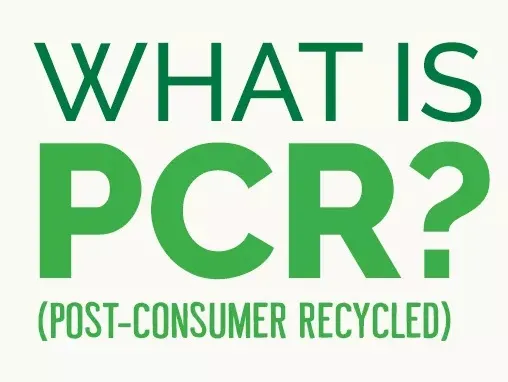- Afrikaans
- Albanian
- Amharic
- Arabic
- Armenian
- Azerbaijani
- Basque
- Belarusian
- Bengali
- Bosnian
- Bulgarian
- Catalan
- Cebuano
- chinese_simplified
- chinese_traditional
- Corsican
- Croatian
- Czech
- Danish
- Dutch
- English
- Esperanto
- Estonian
- Finnish
- French
- Frisian
- Galician
- Georgian
- German
- Greek
- Gujarati
- haitian_creole
- hausa
- hawaiian
- Hebrew
- Hindi
- Miao
- Hungarian
- Icelandic
- igbo
- Indonesian
- irish
- Italian
- Japanese
- Javanese
- Kannada
- kazakh
- Khmer
- Rwandese
- Korean
- Kurdish
- Kyrgyz
- Lao
- Latin
- Latvian
- Lithuanian
- Luxembourgish
- Macedonian
- Malgashi
- Malay
- Malayalam
- Maltese
- Maori
- Marathi
- Mongolian
- Myanmar
- Nepali
- Norwegian
- Norwegian
- Occitan
- Pashto
- Persian
- Polish
- Portuguese
- Punjabi
- Romanian
- Russian
- Samoan
- scottish-gaelic
- Serbian
- Sesotho
- Shona
- Sindhi
- Sinhala
- Slovak
- Slovenian
- Somali
- Spanish
- Sundanese
- Swahili
- Swedish
- Tagalog
- Tajik
- Tamil
- Tatar
- Telugu
- Thai
- Turkish
- Turkmen
- Ukrainian
- Urdu
- Uighur
- Uzbek
- Vietnamese
- Welsh
- Bantu
- Yiddish
- Yoruba
- Zulu
Plastic Bags for Storing and Carrying Alcohol Beverages Efficiently
The Role of Plastic Bags in the Alcohol Industry A Necessary Convenience or an Environmental Concern?
In recent years, the alcohol industry has seen a significant increase in the use of plastic bags for packaging and transporting beverages. This trend raises important questions about consumer convenience versus environmental impact. As we delve into the topic of plastic bags for alcohol, we must consider their advantages, drawbacks, and potential alternatives.
Plastic bags are celebrated for their convenience. They are lightweight, easy to carry, and provide a degree of protection to the fragile glass bottles typically associated with alcoholic beverages. Many consumers appreciate the practicality of using plastic bags, particularly when purchasing multiple items or when attending events where carrying heavy bottles can be cumbersome. The ability to quickly grab a few bags of drinks and head to a picnic, party, or gathering greatly enhances the consumer experience.
However, this convenience comes at a cost. The environmental impact of plastic bags is profound, contributing to pollution and endangering wildlife. According to various studies, millions of plastic bags end up in landfills, oceans, and other natural habitats yearly. These bags take hundreds of years to decompose, leaching harmful chemicals into the soil and waterways in the process. Moreover, marine life often encounters these plastics, leading to injury or death, and ultimately entering our food chain, which poses a significant risk to human health.
plastic bags for alcohol

In response to growing concerns about the environmental impact of plastic waste, many states and countries have started to regulate or ban the use of single-use plastic bags. The alcohol industry, too, is feeling the pressure to adopt more sustainable practices. Some companies are exploring alternatives to plastic, such as biodegradable bags or reusable fabric carriers. These strategies not only address environmental concerns but also resonate with a growing consumer base that prioritizes sustainability.
Moreover, brands are increasingly taking responsibility for their packaging choices. Many breweries, wineries, and distilleries are leveraging their commitment to sustainability as a marketing tool. By offering eco-friendly packaging options, these companies can strengthen their brand loyalty among environmentally conscious consumers. For instance, a winery might provide reusable wine totes, encouraging customers to return them for future purchases, which reduces overall plastic consumption.
The conversation around plastic bags and alcohol packaging must also consider the importance of education. Consumers are often unaware of the far-reaching consequences of their choices. By fostering a dialogue about responsible packaging, the industry can empower individuals to make informed decisions. Retailers can play a crucial role by promoting sustainable practices and offering incentives for customers who choose eco-friendly options.
In conclusion, while plastic bags for alcohol provide undeniable convenience, their environmental footprint cannot be ignored. The industry stands at a crossroads, facing the challenge of balancing consumer needs with environmental responsibilities. By embracing sustainable packaging solutions, educating consumers, and modernizing their approach, the alcohol sector has the power to lead by example in the fight against plastic pollution. The path forward requires collective action from manufacturers, retailers, and consumers alike, ensuring that the convenience of today does not compromise the health of our planet for future generations.













